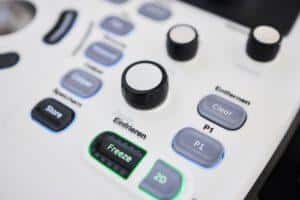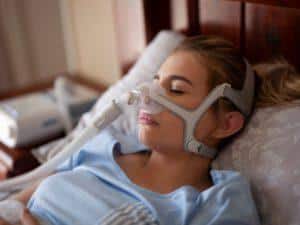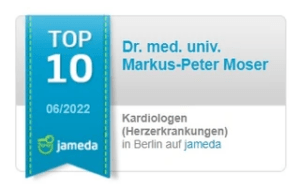Understanding Sleep Apnoea causes, symptoms and treatment options
Sleep apnoea is a sleep disorder that affects millions of people worldwide and can have serious long-term health consequences. Among other things, it can trigger high blood pressure or cardiac arrhythmias. Therefore, this blog will explain how sleep apnoea manifests itself, where it comes from, how it can be diagnosed and treated.
What is sleep apnoea?
Sleep apnoea can be translated as “cessation of breathing during sleep”. Sleep apnoea
Sleep apnoea syndrome – what are the different forms?
Sleep apnoea syndrome can be divided into two forms,
- obstructive sleep apnoea (OSA), the far more common form of
- and central sleep apnoea (CSA), the less common form.
How do central sleep apnoea and obstructive sleep apnoea differ?
Central sleep apnoea (rarer) is caused by a dysfunction in the brain that prevents the patient from sending signals to the breathing muscles to breathe.
In obstructive sleep apnoea (more common), the airways are physically blocked, for example by the tongue falling back or slack tissue in the throat, so that you cannot breathe for a short time. This much more common form occurs more often in overweight people. It is manifested by increased and loud snoring and corresponding pauses in breathing during sleep.
What are the symptoms of sleep apnoea syndrome?
Typical symptoms of sleep apnoea include
- Daytime sleepiness,
- Irritability,
- Palpitations,
- Shortness of breath on waking,
- Dry mouth and increased headaches in the morning,
- Potency problems in men,
- Cravings
- or even concentration difficulties.
How is sleep apnoea syndrome diagnosed?
In an anamnesis interview, the sleeping habits are discussed and, if necessary, supplemented by external anamnesis (reports from the partner regarding snoring or breathing stops). Then the diagnosis follows a step-by-step scheme:
Polygraphy / Sleep Apnoea Screening – Diagnostic Level I
Sleep apnoea screening is first carried out using a polygraph machine. This is a small device that is worn in your home during your sleep and measures your respiratory flow, oxygen saturation, pulse and breathing-related chest and abdominal movements. From this, breathing cessations can be made visible and measurable. The results are then evaluated in the practice.
Sleep Laboratory – Diagnostic Level II
If the results of the polygraphy (sleep apnoea examination) are positive, you will be referred to a sleep laboratory to “confirm” or substantiate the suspicion. Based on the results from the sleep laboratory and the previous diagnostics, you will discuss the further procedure or individual treatment with your cardiologist.
Treatment options for sleep apnoea syndrome

- A change in lifestyle (eating habits, weight reduction, stress reduction, change in sleeping position).
- The use of a CPAP (Continuous Positive Airway Pressure) machine to keep the airway open during sleep.
- Dental splints
- in some cases, ENT surgery may be required to widen the airway
Screening for sleep apnoea is a useful cardiac diagnostic! Why?
Dr. Markus Moser, MD: “Sleep apnoea is a serious sleep disorder that can have long-term effects on your health. Especially if you already have high blood pressure, atrial fibrillation or are overweight, it is advisable to consult a cardiologist.”
My private cardiology practice in Berlin Mitte specialises in holistic cardiology. I provide you with individual and comprehensive care. Together with you, we will find the best treatment options for you.




